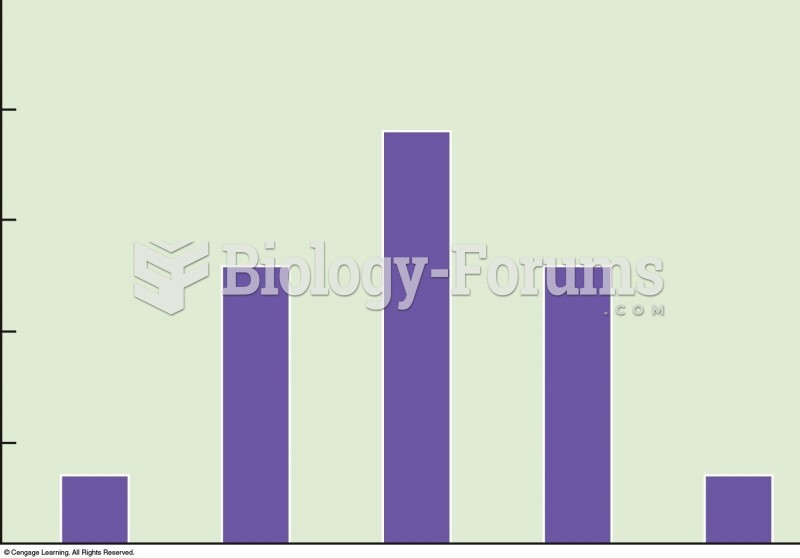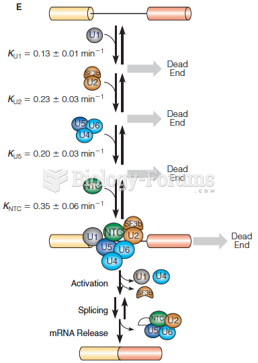|
|
|
Many people have small pouches in their colons that bulge outward through weak spots. Each pouch is called a diverticulum. About 10% of Americans older than age 40 years have diverticulosis, which, when the pouches become infected or inflamed, is called diverticulitis. The main cause of diverticular disease is a low-fiber diet.
Atropine, along with scopolamine and hyoscyamine, is found in the Datura stramonium plant, which gives hallucinogenic effects and is also known as locoweed.
Patients should never assume they are being given the appropriate drugs. They should make sure they know which drugs are being prescribed, and always double-check that the drugs received match the prescription.
More than 30% of American adults, and about 12% of children utilize health care approaches that were developed outside of conventional medicine.
Pubic lice (crabs) are usually spread through sexual contact. You cannot catch them by using a public toilet.
 Analysis of a dihybrid cross involving two traits. Each trait is analyzed separately, then the frequ
Analysis of a dihybrid cross involving two traits. Each trait is analyzed separately, then the frequ
 Frequency distribution of phenotypes from the possible offspring in Figure 5.7. Height of the offspr
Frequency distribution of phenotypes from the possible offspring in Figure 5.7. Height of the offspr





